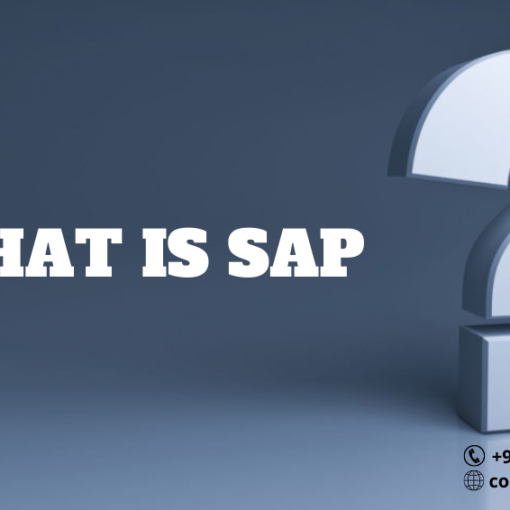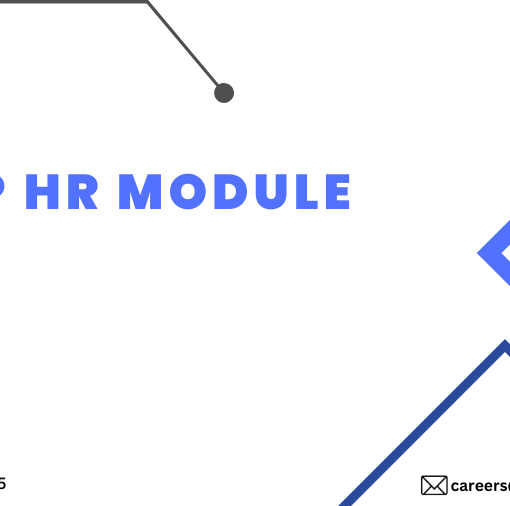What is SAP Cloud ALM?
SAP Cloud ALM is a whole application lifecycle management (ALM) suite for customers who predominantly use cloud solutions. It offers extensive cloud solution deployment and operating skills.
Companies can use it to not only operate but also implement SAP systems. This means that during implementations, all key areas, such as process, test, deployment, and task management, are already covered.
Companies can utilize it for business process monitoring, health monitoring, and user & performance monitoring in the operational area. With embedded intelligence, the system also supports all areas. Processes can be better managed this way, and faults & malfunctions can be discovered early on, thanks to machine learning.
Advantages
- One of the major benefits of Cloud ALM is that it is built on well-known standards and frameworks. Companies may now install SAP S/4HANA and SAP S/4HANA Cloud in a focused and straightforward manner, based on the SAP Active Framework and SAP best practices.
- It becomes the key point for project management – thanks to the integration of SAP solutions.
- As a result, businesses may carry out and document all actions with a single tool. This is true not just for the execution of fit-to-standard workshops, but also for the production, tracking, and recording of test results.
SAP Cloud ALM vs Solution Manager
SAP Solution Manager
SAP Solution Manager (commonly known as SolMan) is a fully integrated on-premise ALM solution from SAP that has been around for quite some time. All aspects of traditional and agile application lifecycle management are supported by a vast variety of services. In detail, the SAP Solution Manager offers the following components:
- Management, analysis, and monitoring of SAP systems are all part of Application Operations.
- Monitoring and improving business processes and interfaces are the responsibility of Business Process Operations.
- Project management is in relation to SAP portfolio and project management (PPM).
- IT service administration is the message management with help desk connection possibilities.
- Define, centrally manage, and execute tests for cross-system procedures with the Test Suite.
- Landscape management is the process of utilizing the IT landscape in a resource-optimized manner.
- Manage self-created program codes with custom code management.
- Process management is the hostile management of business processes from both a business and an IT standpoint.
- Prepare, monitor, and track system changes via change control management.
- Data volume management is keeping track of and reducing data volumes.
SAP Cloud ALM
SAP Cloud ALM is a software-as-a-service (SaaS) solution that SAP launched in 2020. SAP’s own cloud is the only way to use it. The ALM software is similar to SAP Solution Manager in terms of functionality, but it was designed on the SAP Cloud Platform and was specifically suited for the needs of cloud solutions. SAP Enterprise Support already includes usage rights for SAP Cloud ALM (Cloud Editions). As a result, no further license costs are required.
Its goal is o provide a cost-effective, modern alternative to the Solution Manager for cloud-focused businesses in particular. The system is simple to set up and standardizes cloud application management. SAP also releases software upgrades on a daily basis. The new features are available right away. As a result, clients are not required to take any action in order to use it. Cloud ALM comes with some special services & features:
- For quick implementation, a pre-configured, guided method is used.
- Tools for fir-to-standard workshops.
- Tools to help new team members get up to speed quickly.
- Management of requirements and project progress.
- Monitoring and alerting business processes on a proactive basis.
- Problems can be identified using analytics at the business process, integration, user, and application levels.
- For system efficiency, advanced analytics are used.
Main differences between SAP Cloud ALM and SAP Solution Manager
The main difference between SAP Solution Manager and SAP Cloud ALM is that they each target a distinct audience. SAP Solution Manager, for example, is suggested for on-premises solutions, whereas SAP Cloud ALM is intended exclusively for cloud solutions.
As a result, the SAP Solution Manager is the ideal tool for any company that uses an on-premise system (such as SAP S/4HANA) and manages it administratively. SAP Cloud ALM, on the other hand, is designed for businesses that employ cloud applications like SAP S/4HANA Cloud. In this instance, a cloud service provider normally takes over operation and monitoring.
Differences in implementation
The implementation and operation of the two SAP ALM systems also differ significantly. The Solution Manager must be installed and configured by the user company in advance in order to be able to use it.
Some preparatory activities also have to be carried out to use SAP Cloud ALM, but these are very limited. This means that the effort involved in setting up the SaaS solution is minimal. This is an important argument, especially for cloud-focused companies that are already used to this “convenience” from other cloud applications.
SolMan and Cloud ALM, by the way, are incompatible with one another. As a result, data, templates, and monitoring objects cannot be shared between the two products.
SAP Cloud ALM for Operations
The main features of SAP Cloud ALM for Operations are:
- Customers with cloud-centric solution landscapes can get help right away with an out-of-the-box, cloud-native solution.
- A single point of access to manage your whole SAP landscape across several platforms.
- Your operations crew will be onboarded quickly.
- Customers can use SAP Cloud ALM for operations to detect problems and manage alerts automatically.
- Customers have more control over their solution’s health and the efficiency of their operations.
- Users, integration, apps, and business processes are all transparent from start to finish.
- Configuration and processing of events from SAP Cloud ALM for operations are intelligent and centralized.
- Transparency in terms of business service availability, including business downtimes, events, and service level agreements (SLAs).




